Party-List Elections: - ALAGAD Party-List
Party-List Elections: - ALAGAD Party-List
Party-List Elections: - ALAGAD Party-List
Create successful ePaper yourself
Turn your PDF publications into a flip-book with our unique Google optimized e-Paper software.
2013<br />
<strong>Party</strong>-<strong>List</strong> <strong>Elections</strong>:<br />
Can the Basic Sectors Win?
Our Constitution recognizes the need of the<br />
marginalized basic sectors – workers, farmers,<br />
fisherfolk, urban poor, indigenous people,<br />
women, and youth – to be given a voice in the<br />
crafting of laws that affect their lives.<br />
Section 5. (2) The party-list representatives shall constitute 20% of the total number of<br />
representatives including those under the party list. For three consecutive terms after<br />
the ratification of this Constitution, one-half of the seats allocated to party-list<br />
representatives shall be filled, as provided by law, by selection or election from the<br />
labor, peasant, urban poor, indigenous cultural communities, women, youth, and such<br />
other sectors as may be provided by law, except the religious sector. -- 1987 Constitution
But, sadly, over the years,<br />
traditional politicians have<br />
manipulated and dominated<br />
the partylist system for<br />
themselves, their family<br />
members and relatives, and<br />
their business and political<br />
partners – robbing the basic<br />
sectors, the poor and the<br />
marginalized, of their only<br />
chance to be heard in<br />
Congress.
How did this happen?<br />
KALINGA CIBAC BUHAY<br />
1. Instead of limiting the<br />
LPGMA 1 CARE YACAP<br />
partylist system to sectoral<br />
UNA ANG AGP PAMILYA<br />
organizations, RA 7941<br />
allowed national and regional<br />
ABONO ABS AGBIAG<br />
parties to join.<br />
2. The Comelec qualified, APEC AGAP AA KASOSYO<br />
accredited and registered<br />
parties or organizations or AVE AAMBIS-OWA DIWA<br />
coalitions without regard to<br />
1-UTAK PBA ALE<br />
their real sectoral nature.<br />
Known politicians, families<br />
AGHAM AKO BICOL<br />
and traditional parties were<br />
emboldened – with husbandand-wife,<br />
mother-and-son,<br />
AN WARAY AANGAT TAYO<br />
ABANTE MINDANAO<br />
government officials, and<br />
wealthy businessmen<br />
ANG KASANGGA ANAD<br />
participating.<br />
BAGONG HENERASYON KAKUSA
3. The Administration (and the<br />
opposition, too) funded sectoral<br />
parties with the end view of<br />
gaining more allies in Congress.<br />
4. The bases of real basic sector<br />
groups are easily swayed by<br />
glitzy propaganda, false<br />
promises, vote-buying, or even<br />
threat and intimidation.<br />
5. Traditional politicians say: “There<br />
is no labor, farmer, or urban poor<br />
vote. What counts is money, and<br />
lots of it. Panalo lalo ang huling<br />
magpakain at magpainom.”<br />
6. The huge number of candidates<br />
only aggravate the confusion –<br />
further dimming the chances of<br />
basic sector groups.
Among the groups vying for a partylist seat in<br />
Congress, <strong>ALAGAD</strong> has an established track record<br />
of advancing the urban poor sector’s agenda.<br />
Help advance the interest<br />
of the urban poor. Support<br />
<strong>ALAGAD</strong> <strong>Party</strong>-<strong>List</strong>.



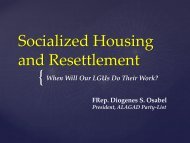
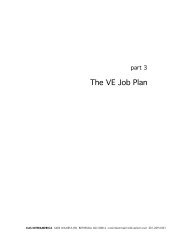
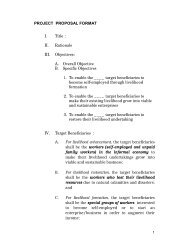
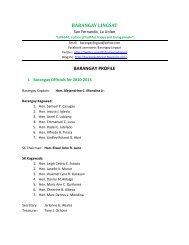
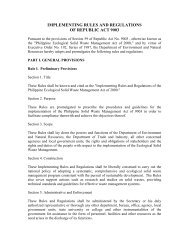
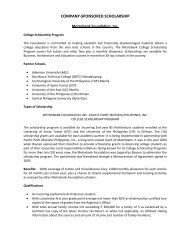
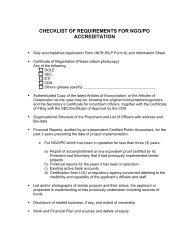
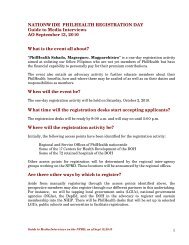
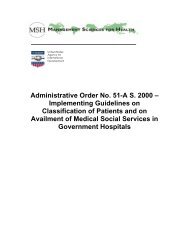
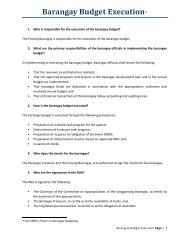
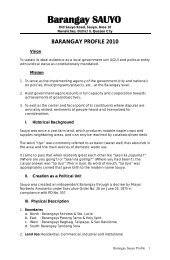
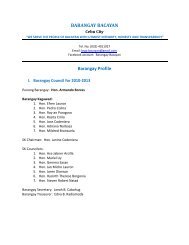
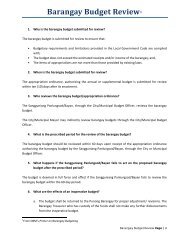
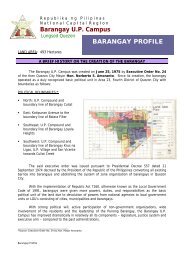
![[Cover Letter Format Guidelines]](https://img.yumpu.com/31846782/1/190x245/cover-letter-format-guidelines.jpg?quality=85)